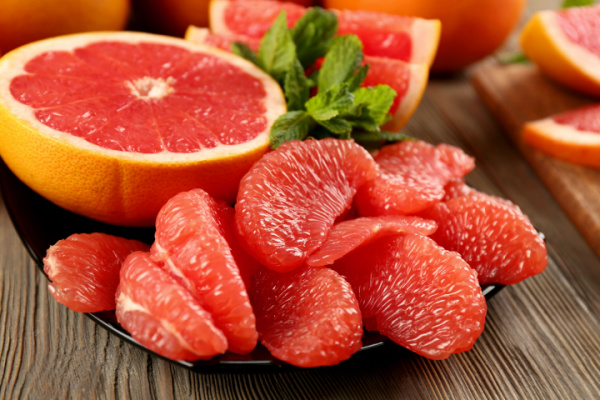 Scientists Are Working on Creating a New Grapefruit That Won’t Interfere With Your Medication
Scientists Are Working on Creating a New Grapefruit That Won’t Interfere With Your Medication
Grapefruit is a citrus powerhouse. As Johns Hopkins Medicine explains, the fruit, which originated in Barbados, is rich in fiber, vitamin C, and vitamin A, and “supplies about 10% of your daily potassium needs, along with 8% of your requirements for thiamine and folate.”
However, for decades, those on certain medications have been advised to avoid this citrus fruit because it could interfere with the drug’s intended effects. But scientists say they are close to breeding a grapefruit that is safe for everyone to consume.
Here’s what to know.
Why and How does Grapefruit Interfere with Medications?
According to the Canadian Medical Association Journal, grapefruit’s interaction with medications has been studied for more than 20 years. All that research has identified that the primary culprit for these interactions is a group of naturally occurring compounds in grapefruit known as furanocoumarins, which inhibit the activity of key enzymes (known as cytochrome P450 3A4), which are critical for how humans metabolize drugs.
“Cytochrome P450 3A4 is particularly essential because it is involved in the bioinactivation of about 50% of all drugs,” the journal explained, noting that these enzymes are located in epithelial cells, which line the “small intestines and colon, and in the parenchymal cells of the liver.”
Grapefruit inhibiting these enzymes would mean the body cannot properly metabolize the drugs, thus posing the potential for overdosing on the medication as too much of it would enter the human bloodstream.
“Because these chemicals are innate to grapefruit, all forms of the fruit (freshly squeezed juice, frozen concentrate, and whole fruit) have the potential to reduce the activity of CYP3A4,” the journal added. “One whole grapefruit or 200 milliliters of grapefruit juice is sufficient to cause clinically relevant increased systemic drug concentration and subsequent adverse effects.”
Who Should Not Be Eating Grapefruit?
Scientific American highlighted the National Capital Poison Center’s findings, indicating that grapefruit interacts with at least 85 different medications, including common antibiotics and drugs prescribed for depression. Some notable examples consist of statins, prescribed to lower cholesterol; blood pressure medications such as nifedipine and amlodipine; immunosuppressants like cyclosporine; anxiety medications; and drugs for treating irregular heartbeats. Blood thinners, certain cancer treatments, and additional antibiotics are also included.
For more information, visit FDA.gov, and check for potential drug interactions at go.drugbank.com.
What is Different about this New kind of Grapefruit?
A recent study published in New Phytologist explores the possibility of new breeding methods to reduce furanocoumarins in grapefruit by finding the gene responsible for producing them. To do this, citrus researchers at Israel’s Volcani Center crossbred grapefruit with mandarin oranges and examined the resulting fruit.
“We saw in the progeny that 50% of them produce furanocoumarins and 50% do not,” Livnat Goldenberg, a postdoctoral researcher at the Volcani Institute and the study’s first author, shared with Scientific American. “That indicated that maybe there’s only one gene involved in this pathway of furanocoumarin biosynthesis … Then we checked it for activity, and we saw it does produce the first component of the furanocoumarin pathway.”
However, there is one other way this could all be possible: Through gene editing. The researchers told Scientific American they are also using CRISPR to create trees growing these edited fruits. “We’re in the process of developing this kind of grapefruit,” Yoram Eyal, a professor at the Volcani Center, confirmed.
How soon could the New Grapefruit Be Ready?
It will still take a few years for this research to, well, bear fruit. Literally. The team is currently growing the trees from seedlings, a process that will take several years before they produce fruit. Then, they noted they will collaborate with medical professionals to test the fruit and ensure its safety for human consumption. So, until that day arrives, it’s important to listen to your doctor and choose a different drink or fruit option while science catches up.
—
Photo Credit: Africa Studio / Shutterstock.com








